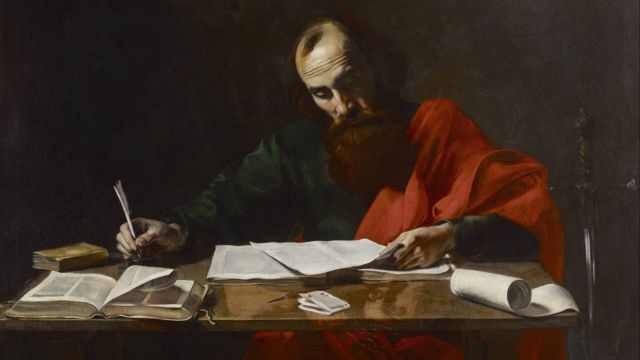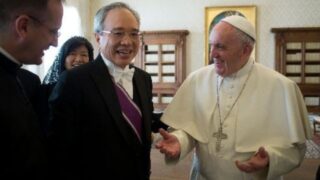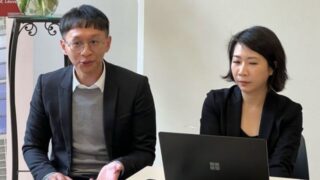Catholic Pope Pius XI once stated that politics is the highest form of charity. By fighting for conscience, love, and justice Tai Ji Men dizi practice this higher charity every day.
by Massimo Introvigne*
*A paper presented at the webinar “Tai Ji Men: A Message of Charity, Conscience, and Human Rights,” co-organized by CESNUR and Human Rights Without Frontiers on September 4, 2023, on the eve of the United Nations International Day of Charity.


When we hear the word “charity,” the first image that comes to our mind is “giving charity to the poor and the needy.” It is certainly a worthy enterprise, and one that needs to be defended today against those who regard giving charity as paternalistic and distracting from the fight for social justice. The poor and the needy needs our work for social justice, but they also need to be given charity.
However, in the Christian tradition, as well as in other religions, charity is much more. All Christians are familiar with the beginning of the thirteen chapter of Paul the Apostle’s First Letter to the Corinthians: “Though I speak with the tongues of men and of angels, and have not charity, I become as sounding brass, or a tinkling cymbal. And though I have the gift of prophecy, and understand all mysteries, and all knowledge; and though I have all faith, so that I could remove mountains, and have not charity, I am nothing. And though I bestow all my goods to feed the poor, and though I give my body to be burned, and have not charity, it profits me nothing.”
It is clear, here, that “charity” has a different meaning from “giving to the poor.” The Apostle writes that it is possible to give all our goods to the poor, and still lack charity. In fact, I have deliberately quoted the venerable King James English translation of the Bible. In modern English versions, the word “charity” is substituted by “love.” Although the Latin text of the Vulgate uses “caritas,” whose most literal translation is “charity,” the original Greek has “agápe,” which supports both translations. The problem, however, is not so much whether we translate “agápe” with “charity” or “love.” The fact is that charity and love are one and the same.


The “Catechism of the Catholic Church” teaches that charity is “infused by God into the souls.” It gives us the capacity to love God, love our fellow human beings, and perform virtuous deeds. In the same First Letter to the Corinthians, listing what Christians call the three “theological virtues,” Apostle Paul wrote: “Faith, hope, charity, these three; but the greatest of these is charity.”
The famous 17th-century French Catholic philosopher Blaise Pascal wrote that, “The infinite distance between bodies and spirits is a figure of the infinitely more infinite distance between spirits and charity. […] All bodies together, and all spirits together, and all their productions, are not worth the slightest movement of charity. The latter is of an infinitely higher order.”
Charity for Christianity is, particularly in the Catholic tradition, the innate compass directing us to love and good deeds. Although charity and conscience can be distinguished, charity is the functional equivalent of a good conscience. And we have seen that charity and love are the same.
Although rooted in a different tradition, this is also the central teaching of Dr. Hong Tao-Tze, the Shifu (Grand Master) of Tai Ji Men. Conscience and love (or charity) are not synonyms, yet conscience is “the wellspring of love,” he teaches. In the “Declaration for the Movement of an Era of Conscience,” we read that “Conscience is the key to inspiring kind hearts and good deeds. Conscience will lead to happiness and blessings of people and other species. Conscience is the wellspring of love and peace.”
Back to Paul the Apostle and the First Letter to the Corinthians. He added that “charity rejoices not in the iniquity but rejoices in the truth.” Here, we see that charity and love are not empty or sugary words better reserved for Italian melodic songs. Charity is indeed political. It denounces iniquity and struggles for truth. Catholic Pope Pius XI once stated that “politics is the highest form of charity,” a sentence that subsequent Popes have often quoted. In fact, both Pius XII and Paul VI quoted it so emphatically that they are sometimes wrongly credited with having created it, while this honor belongs to their predecessor Pius XI, in a speech to the leaders of the Catholic University Federation of December 18, 1927.
Again, we read in the “Declaration for the Movement of an Era of Conscience,” that “Conscience leads to good governance. Only conscience-driven policies complemented by conscientious administrations can benefit and stabilize the society.”


The opposite is also true. You cannot “rejoice in the truth” without rejecting and exposing iniquity. The lack of conscience, charity, and love leads to bad governance, unjust administration, and an unstable society inimical to its own citizens.
In our webinars, we propose a good deal of technical analyses of the Tai Ji Men case. They are all useful, and we should not get tired to repeat that the case started with an illegal raid that led to illegal detentions, continued with an illegal prosecution, and ended up in illegal tax bills and the illegal seizure, auction, and confiscation of Tai Ji Men’s sacred land.
Although all this is true, it is not the ultimate truth about the Tai Ji Men case. The case originated from a deficit of conscience, love, and charity among Taiwan’s bureaucrats, governments, and perhaps Taiwanese society in general.
Hence, Tai Ji Men’s struggle is not about money. It is about restoring love, conscience, and charity. Theirs is truly, in this sense, “the highest form of charity.”









